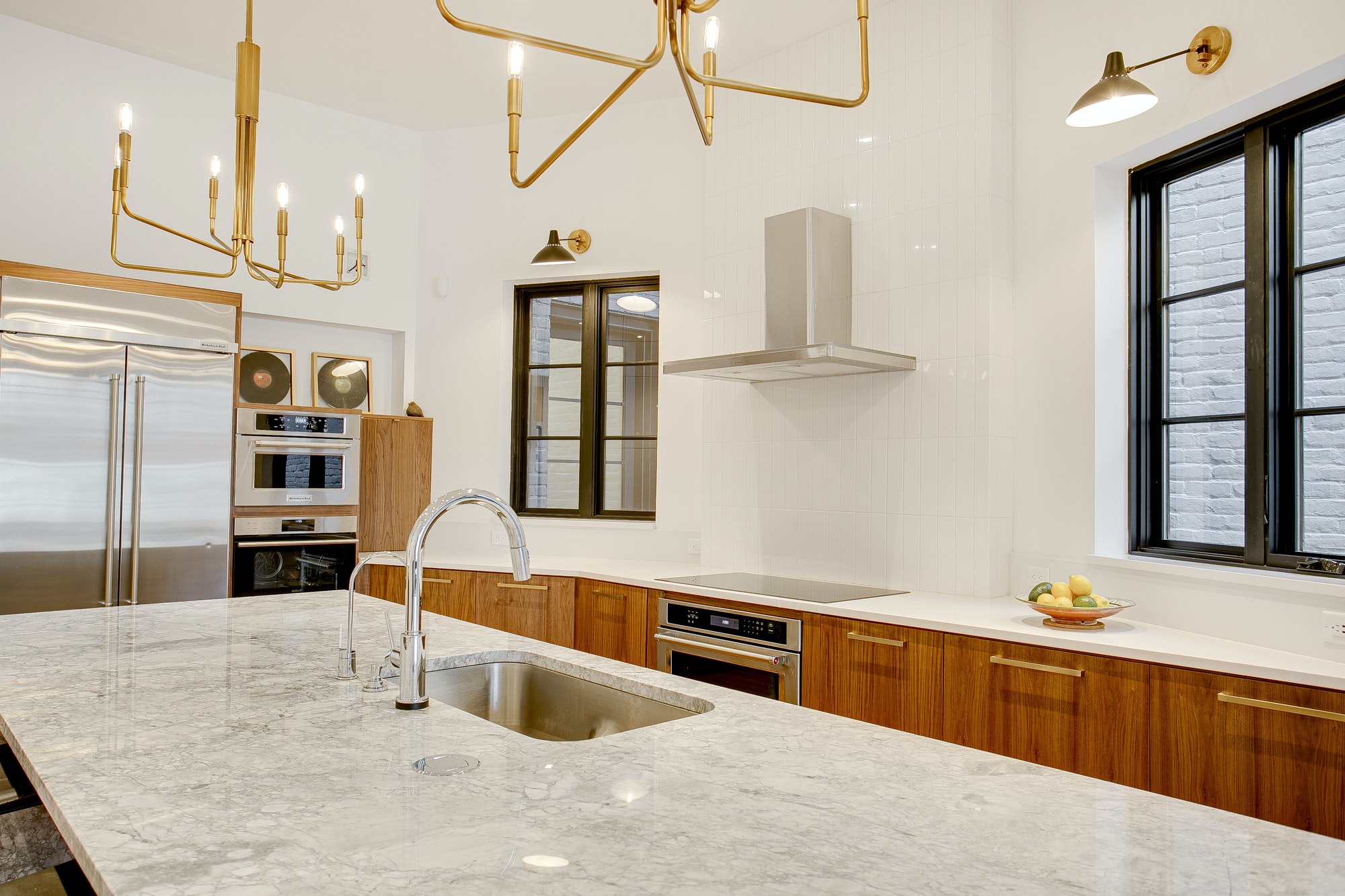Quartz is one of the toughest and most highly functional countertop materials available. It is created using the earth’s most sought-after minerals. Although quartz is not a natural stone like marble, slate, etc., it gives a more appealing and natural look to a kitchen or bathroom.
How are quartz countertops made?
There are certain steps to create a good quality quartz slab. Companies, like Caesarstone, who have been in the quartz business for several decades are known for creating high-quality quartz countertop products for homes and businesses.
Let us see how quartz countertops are made and what all goes along in its making process.
1. All the raw materials are mixed
As quartz is made from raw natural minerals, the first step in its making process is mixing up all these materials together. The minerals used in the making of quartz are majorly ground quartz.
Ground quartz is a natural material found in mountaintops, beaches, rivers, and desert sand. It is a durable and high-quality material, so it is a great fit for countertops.
Apart from ground quartz, various polymers, pigments, and resins are also used in creating quartz countertops. For creating colored quartz, certain stones and pigments are mixed to form a uniform and perfect design on countertops and islands.
When all these ingredients are mixed, a damp sand-like paste is formed. In this stage, all these ingredients start to form a bond that is helpful in the next step.
2. A large mold of the mix is created
After the mix gets created, it is poured down into a large mold designed according to the countertop’s shape. Usually, these molds are flat, rectangular slabs. This is the process where quartz tends to take its shape.
In the mold, the quartz mixture is evenly distributed so that there are no gaps in between. This process is important to make the quartz slab non-porous.
3. Mould is flattened into quartz slabs
Next, the mold is compressed under immense pressure with the help of large machines. This process helps flatten out the slab and all the tiny pieces so that it can become one solid piece of slab. The thickness of the counter slab should be around 1-inch thick, so this process also makes sure that by no means the thickness of the slab is compromised.
This solid piece of the slab also undergoes special processes to ensure that the counter is non-porous. Industrial vacuums are used to suck out all the air pockets from it. A few other processes are also used to loosen up the left-out air pockets. Overall this process is dedicated to solidifying the slab and making it as air-tight as possible.
4. Drying and heating of quartz slabs
After the compression part is over, this slab is ready for drying up and baking. Hot machines provide heat and pressure on the slabs so that the quartz can become hard, but its surface remains smooth. All this is done to ensure no air pockets left where the bacteria could hide. Even the tiniest pores are covered so that there is no chance of liquid or any foreign matter entering through the surface.
As quartz is an artificial stone, more effort is put into making it as useful as possible for the kitchen.
5. In the end, finishing is done
When all the above processes are done, finishing touches are given to the slab. Most of the time, large machines are used for polishing these slabs. After this, a stone fabricator is used for some hand polishing to eliminate any issues.
For installing it in one’s kitchen or bathroom, usually, a technician comes in to inspect the area and take proper measurements. Then these measurements are further sent to the factory for cutting it up according to the available space. Finally, experienced fabricators in the factory cut the quartz countertop in the correct size and make it ready for your kitchen or bathroom.
Cutting the slab and making it ready for the kitchen or bathroom is an important step. A fabricator has to look for many aspects while cutting down the quartz countertop, like making space for sink basins. After the cutting process is done, the quartz countertop is hand polished and inspected before leaving the factory — and this answers the question “how are quartz countertops made?”.
Now that you know the process involved in making a quartz countertop, you might have certain questions regarding whether investing in it is good. Here are some of the questions that usually come to mind from homeowners.
Are quartz countertops heat resistant?
Yes, quartz countertops are heat resistant. During the countertop fabrication, the quartz goes through a process called curing. In this process, the polymers of the quartz are hardened up. This whole process is done at a temperature of about 180 degrees Fahrenheit.
Due to this process, the whole countertop develops resistance to heat, stains, and chipping. After installation, the quartz countertops’ capacity to resist heat goes up to 300 degrees Fahrenheit. But it cannot take the heat above this point. From 300 degrees Fahrenheit onwards, the quartz resin binders start to loosen up and change their chemical state.
So it is highly advisable not to expose quartz countertops above a certain heating point.
Where are quartz countertops used?
Quartz countertops can be used almost anywhere in the kitchen – indoor, outdoor, or bathroom. You can also use quartz countertops in the mini garden bar area. No matter where you use quartz, it enhances that specific area’s beauty. There are various types of quartz countertop designs that you can go search and use for your home.
Is quartz countertop stain-resistant?
Yes, quartz countertops are stain-resistant. Quartz is a non-porous material which means that there is no chance of any liquid or gas passing through it. Due to this, you will never face any issues regarding staining on your quartz countertop.
Why choose a quartz countertop?
There are many other materials available for making countertops, but quartz stands out from all of them:
- Durable: Quartz is a handmade stone. It is built using hard materials, making it extremely durable.
- Gives a glossy look: The fine finishing of quartz is unbeatable. It looks extremely glossy and will instantly make your kitchen or bathroom shine.
- Easy cleaning: For cleaning quartz countertops, you only require a mild soap or any mild cleaning cream, and you are good to go.
Discover more from Futurist Architecture
Subscribe to get the latest posts sent to your email.



